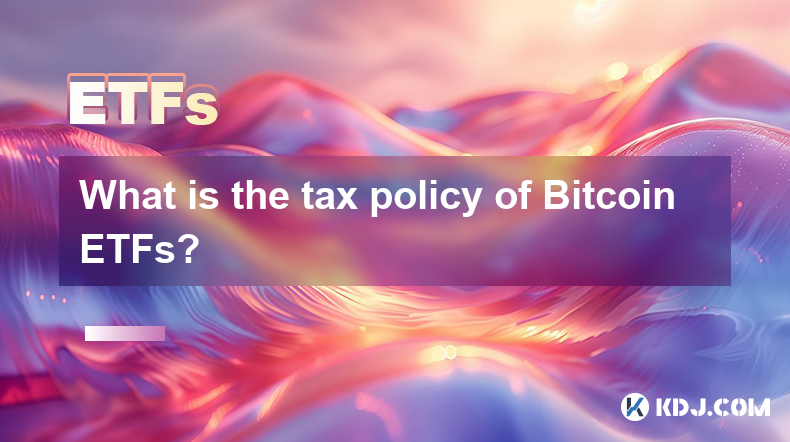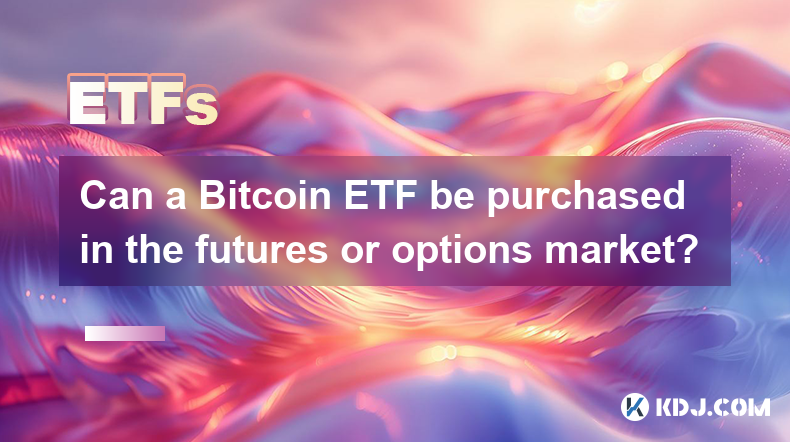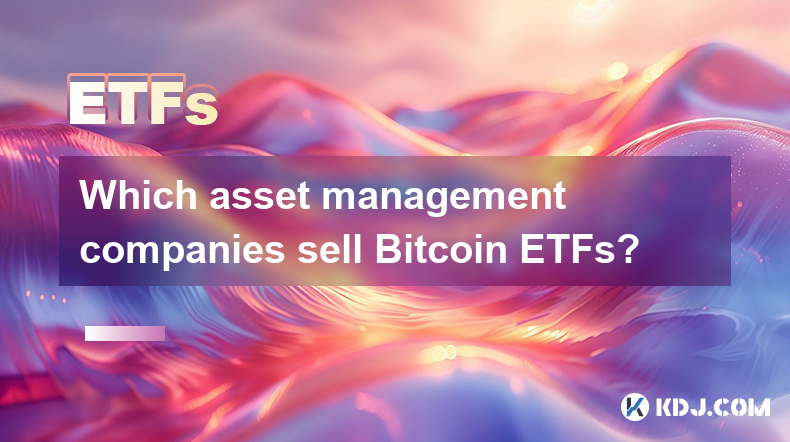-
 Bitcoin
Bitcoin $85,134.1423
0.86% -
 Ethereum
Ethereum $1,882.9872
0.08% -
 Tether USDt
Tether USDt $0.9999
-0.01% -
 XRP
XRP $2.1267
-2.21% -
 BNB
BNB $602.6119
-2.07% -
 Solana
Solana $126.3155
-1.94% -
 USDC
USDC $1.0000
-0.01% -
 Dogecoin
Dogecoin $0.1732
0.20% -
 Cardano
Cardano $0.6830
0.34% -
 TRON
TRON $0.2389
2.17% -
 Toncoin
Toncoin $4.0609
-1.54% -
 Chainlink
Chainlink $13.6750
-2.45% -
 UNUS SED LEO
UNUS SED LEO $9.3981
2.01% -
 Stellar
Stellar $0.2681
-2.14% -
 Sui
Sui $2.4875
2.30% -
 Avalanche
Avalanche $19.4840
-0.66% -
 Shiba Inu
Shiba Inu $0.0...01242
-3.54% -
 Hedera
Hedera $0.1684
-1.60% -
 Polkadot
Polkadot $4.1148
-2.95% -
 Litecoin
Litecoin $83.0925
-2.19% -
 Bitcoin Cash
Bitcoin Cash $306.4919
-2.06% -
 MANTRA
MANTRA $6.2535
-0.54% -
 Bitget Token
Bitget Token $4.6025
-0.96% -
 Dai
Dai $1.0000
-0.01% -
 Ethena USDe
Ethena USDe $0.9999
0.02% -
 Pi
Pi $0.6766
-5.48% -
 Hyperliquid
Hyperliquid $13.5266
-2.56% -
 Monero
Monero $216.1067
-0.56% -
 Uniswap
Uniswap $6.1363
-0.96% -
 Aptos
Aptos $5.3208
-1.08%
What is the tax policy of Bitcoin ETFs?
Bitcoin ETF tax policies vary globally, impacting capital gains based on holding periods (short-term vs. long-term) and whether the ETF holds Bitcoin directly or via derivatives; tax-loss harvesting may be an option, but regulatory clarity remains a challenge.
Feb 28, 2025 at 10:00 am

What is the tax policy of Bitcoin ETFs?
Key Points:
- Bitcoin ETFs, while not yet widely available in all jurisdictions, face varying tax treatments globally depending on the ETF structure and the investor's location.
- Capital gains taxes are the primary concern, impacting profits from ETF share sales. Tax implications can differ significantly based on whether the ETF holds Bitcoin directly or indirectly through derivatives.
- Holding periods significantly influence the tax rate. Short-term gains (generally, held for less than one year) are taxed at ordinary income rates, while long-term gains (held for over one year) receive preferential rates.
- Tax-loss harvesting, a strategy to offset capital gains with capital losses, might be applicable but depends on the specific tax laws of the investor's jurisdiction.
- Regulatory clarity and consistency across different jurisdictions remain a challenge for investors navigating the tax complexities of Bitcoin ETFs.
Detailed Explanation:
The tax implications of investing in Bitcoin ETFs are multifaceted and depend heavily on several interacting factors. There's no single, universal tax policy for Bitcoin ETFs, as regulations vary significantly between countries. Understanding these nuances is crucial for informed investment decisions.
- Capital Gains Taxation: The most significant tax consideration for Bitcoin ETF investors is capital gains tax. This tax applies when you sell your ETF shares for a profit. The amount of tax you owe depends on your holding period and your tax bracket. If the ETF distributes dividends (which is less common with Bitcoin ETFs focused on price appreciation, but possible in some structures), these dividends will also be taxed as ordinary income in most jurisdictions. This is separate from the capital gains tax you'll pay upon selling your ETF shares. The tax treatment of these dividends can vary depending on the specific ETF structure and the country of residence. For example, in the US, dividends from a Bitcoin ETF might be treated as either qualified dividends (with a lower tax rate) or ordinary income, depending on the ETF's investment strategy. In other jurisdictions, the treatment could differ further, with some countries applying withholding taxes on dividends paid to non-residents.
- Direct vs. Indirect Bitcoin Holdings: Bitcoin ETFs can hold Bitcoin either directly or indirectly. Those holding Bitcoin directly (a physical Bitcoin ETF, though currently rare) generally lead to simpler tax calculations. The capital gains are determined solely by the difference between the purchase and sale prices of the ETF shares, mirroring the price movements of the underlying Bitcoin. However, ETFs using derivatives (like futures contracts or swaps) to track Bitcoin's price present a more complex tax scenario. The gains and losses from the derivatives themselves can be taxed differently, potentially resulting in a higher tax burden or increased complexity in reporting. This is because the ETF's income and expense statements might include gains and losses from the derivatives, rather than just the change in Bitcoin's price. Understanding the ETF's prospectus and its investment strategy is crucial for determining how the gains will be taxed. For instance, some jurisdictions might tax gains from futures contracts differently than gains from directly held assets.
- Holding Period and Tax Rates: The length of time you hold your Bitcoin ETF shares significantly impacts your tax liability. Short-term capital gains (generally, assets held for one year or less) are taxed at your ordinary income tax rate, which is typically higher than the rate for long-term capital gains. Long-term capital gains (assets held for more than one year) are usually taxed at a lower, preferential rate. This difference can be substantial, making long-term investment in Bitcoin ETFs a potentially more tax-efficient strategy. The specific tax rates for both short-term and long-term capital gains vary based on the investor's income level and the tax laws of their country of residence. For instance, in the United States, the long-term capital gains rates range from 0% to 20%, depending on taxable income, whereas short-term gains are taxed at rates up to 37%. This underscores the importance of understanding your personal tax bracket and how it interacts with the capital gains tax rates.
- Tax-Loss Harvesting: This is a tax strategy that allows investors to offset capital gains with capital losses. If you have realized capital losses from other investments, you can potentially use them to reduce your tax liability on gains from your Bitcoin ETF. The rules governing tax-loss harvesting vary significantly by jurisdiction. For example, in the US, there are limitations on the amount of capital losses you can deduct against ordinary income in a single year. You might be able to carry forward unused losses to future tax years. This strategy requires careful planning and understanding of the relevant tax regulations. The complexity increases when dealing with multiple investments, different asset classes (including Bitcoin ETFs and other cryptocurrencies), and varying holding periods. Professional tax advice is often recommended to optimize tax-loss harvesting strategies.
- Regulatory Uncertainty and Cross-Border Implications: One of the biggest challenges in understanding the tax implications of Bitcoin ETFs is the evolving regulatory landscape. Tax laws surrounding cryptocurrencies are still relatively new and subject to change. This uncertainty is amplified for investors holding Bitcoin ETFs across international borders. Tax treaties between countries can influence the tax treatment of capital gains, and different jurisdictions may have different reporting requirements. Investors with international portfolios need to navigate complex cross-border tax rules, potentially requiring specialized tax advice to ensure compliance. The lack of consistent global regulations creates complexities for reporting and compliance, particularly for investors with holdings across multiple jurisdictions.
FAQs:
Q: Are Bitcoin ETFs taxed differently than traditional ETFs?
A: Yes, the tax treatment can differ significantly. While traditional ETFs often generate dividends which are taxed as ordinary income or qualified dividends, Bitcoin ETFs may primarily generate capital gains upon sale of the shares. The tax implications are also influenced by whether the ETF holds Bitcoin directly or indirectly through derivatives. The complexities of taxation increase with the use of derivatives.
Q: How are capital gains from Bitcoin ETFs calculated?
A: Capital gains are calculated by subtracting the original cost basis (the price you paid for the ETF shares) from the proceeds (the amount you received from selling the shares). The holding period (short-term or long-term) determines the applicable tax rate. If the ETF distributes dividends, those are taxed separately as ordinary income in most jurisdictions. The complexity increases if the ETF uses derivatives; the gains or losses from the underlying derivatives will also need to be considered when calculating the total capital gains.
Q: What are the tax implications of holding Bitcoin ETFs in a retirement account?
A: The tax implications of holding Bitcoin ETFs within a retirement account (such as a 401(k) or IRA in the US) are dependent on the specific type of account. Generally, taxes are deferred until withdrawal in retirement. However, the rules and regulations surrounding the inclusion of crypto assets within retirement accounts are still evolving and may differ significantly across jurisdictions. It is vital to check the regulations applicable to your specific retirement account and jurisdiction.
Q: What is the role of the ETF provider in determining tax liability?
A: The ETF provider is responsible for providing accurate information regarding the ETF's investment strategy and the associated tax implications in the prospectus. This information is crucial for investors to accurately calculate their tax liability. However, the ultimate responsibility for filing accurate tax returns and paying taxes rests with the individual investor. The provider's information is a guide, but individual circumstances may lead to varying tax implications.
Q: What should I do if I'm unsure about the tax implications of my Bitcoin ETF investments?
A: Seek professional advice from a qualified tax advisor familiar with cryptocurrency and investment taxation. Tax laws are complex and constantly evolving, particularly in the area of cryptocurrencies. A professional can help you navigate the complexities, ensure compliance, and optimize your tax strategy.
Disclaimer:info@kdj.com
The information provided is not trading advice. kdj.com does not assume any responsibility for any investments made based on the information provided in this article. Cryptocurrencies are highly volatile and it is highly recommended that you invest with caution after thorough research!
If you believe that the content used on this website infringes your copyright, please contact us immediately (info@kdj.com) and we will delete it promptly.
- Altcoins Nosedive Up to 50% On Binance, Sparking Confusion Among Investors
- 2025-04-02 18:35:12
- EOS Price Soars Nearly 20% as Vaulta Banking Initiative Boosts Investor Confidence
- 2025-04-02 18:35:12
- EOS (VAULT) Price Surges 20% as the Network Unveils Its Vaulta Banking Advisory Council
- 2025-04-02 18:30:12
- United States Senator Ted Cruz has introduced a new bill that offers tax incentives for cryptocurrency miners using flared natural gas to power mining operations.
- 2025-04-02 18:30:12
- Pi Network's Native Cryptocurrency, PI, Drops 74% From Its All-Time High
- 2025-04-02 18:25:12
- Pendle (PENDLE) Token Attracts Whales as 5 Newly Created Wallets Withdraw 2.66M Tokens From Binance
- 2025-04-02 18:25:12
Related knowledge

How to buy Bitcoin ETF through cryptocurrency wallet?
Mar 30,2025 at 08:22pm
It's important to understand that you cannot directly buy a Bitcoin ETF through a cryptocurrency wallet. Cryptocurrency wallets are designed to hold and manage digital assets like Bitcoin itself, not exchange-traded funds (ETFs). Bitcoin ETFs are traded on traditional stock exchanges, not decentralized cryptocurrency exchanges. Therefore, the process i...

On which fintech platforms can Bitcoin ETFs be traded?
Mar 28,2025 at 09:21am
Navigating the Bitcoin ETF Landscape on Fintech PlatformsThe availability of Bitcoin ETFs on fintech platforms is a rapidly evolving landscape. Currently, the approval and subsequent listing of Bitcoin ETFs are subject to regulatory hurdles and vary significantly by jurisdiction. Therefore, the specific platforms offering Bitcoin ETF trading depend hea...

Does buying a Bitcoin ETF require a specific investment strategy?
Mar 27,2025 at 06:36pm
Understanding Bitcoin ETFs and Investment StrategiesA Bitcoin Exchange-Traded Fund (ETF) is a type of investment fund that tracks the price of Bitcoin. Investing in a Bitcoin ETF offers exposure to the cryptocurrency market without the complexities of directly owning and securing Bitcoin. However, like any investment, a successful strategy requires car...

Can a Bitcoin ETF be purchased in the futures or options market?
Mar 27,2025 at 02:49am
Understanding Bitcoin ETFs and Derivative MarketsA Bitcoin ETF (Exchange-Traded Fund) is a fund that tracks the price of Bitcoin. Unlike directly buying Bitcoin, an ETF offers a more regulated and accessible way for investors to gain exposure to the cryptocurrency market through traditional brokerage accounts. However, the availability of a Bitcoin ETF...

How to buy Bitcoin ETF through social trading platform?
Mar 27,2025 at 10:43am
How to Buy Bitcoin ETF Through Social Trading Platforms? Understanding Bitcoin ETFs and Social TradingA Bitcoin ETF (Exchange-Traded Fund) is a fund that tracks the price of Bitcoin. Unlike directly buying Bitcoin, an ETF offers a regulated and potentially less volatile way to gain exposure to the cryptocurrency market. This is because ETFs are traded o...

Which asset management companies sell Bitcoin ETFs?
Mar 28,2025 at 02:21am
The Current Landscape of Bitcoin ETF OfferingsCurrently, no asset management company offers a fully-fledged, SEC-approved Bitcoin ETF in the United States. While several companies have filed applications, the Securities and Exchange Commission (SEC) has yet to approve any. This is primarily due to concerns surrounding market manipulation, investor prot...

How to buy Bitcoin ETF through cryptocurrency wallet?
Mar 30,2025 at 08:22pm
It's important to understand that you cannot directly buy a Bitcoin ETF through a cryptocurrency wallet. Cryptocurrency wallets are designed to hold and manage digital assets like Bitcoin itself, not exchange-traded funds (ETFs). Bitcoin ETFs are traded on traditional stock exchanges, not decentralized cryptocurrency exchanges. Therefore, the process i...

On which fintech platforms can Bitcoin ETFs be traded?
Mar 28,2025 at 09:21am
Navigating the Bitcoin ETF Landscape on Fintech PlatformsThe availability of Bitcoin ETFs on fintech platforms is a rapidly evolving landscape. Currently, the approval and subsequent listing of Bitcoin ETFs are subject to regulatory hurdles and vary significantly by jurisdiction. Therefore, the specific platforms offering Bitcoin ETF trading depend hea...

Does buying a Bitcoin ETF require a specific investment strategy?
Mar 27,2025 at 06:36pm
Understanding Bitcoin ETFs and Investment StrategiesA Bitcoin Exchange-Traded Fund (ETF) is a type of investment fund that tracks the price of Bitcoin. Investing in a Bitcoin ETF offers exposure to the cryptocurrency market without the complexities of directly owning and securing Bitcoin. However, like any investment, a successful strategy requires car...

Can a Bitcoin ETF be purchased in the futures or options market?
Mar 27,2025 at 02:49am
Understanding Bitcoin ETFs and Derivative MarketsA Bitcoin ETF (Exchange-Traded Fund) is a fund that tracks the price of Bitcoin. Unlike directly buying Bitcoin, an ETF offers a more regulated and accessible way for investors to gain exposure to the cryptocurrency market through traditional brokerage accounts. However, the availability of a Bitcoin ETF...

How to buy Bitcoin ETF through social trading platform?
Mar 27,2025 at 10:43am
How to Buy Bitcoin ETF Through Social Trading Platforms? Understanding Bitcoin ETFs and Social TradingA Bitcoin ETF (Exchange-Traded Fund) is a fund that tracks the price of Bitcoin. Unlike directly buying Bitcoin, an ETF offers a regulated and potentially less volatile way to gain exposure to the cryptocurrency market. This is because ETFs are traded o...

Which asset management companies sell Bitcoin ETFs?
Mar 28,2025 at 02:21am
The Current Landscape of Bitcoin ETF OfferingsCurrently, no asset management company offers a fully-fledged, SEC-approved Bitcoin ETF in the United States. While several companies have filed applications, the Securities and Exchange Commission (SEC) has yet to approve any. This is primarily due to concerns surrounding market manipulation, investor prot...
See all articles

























































































